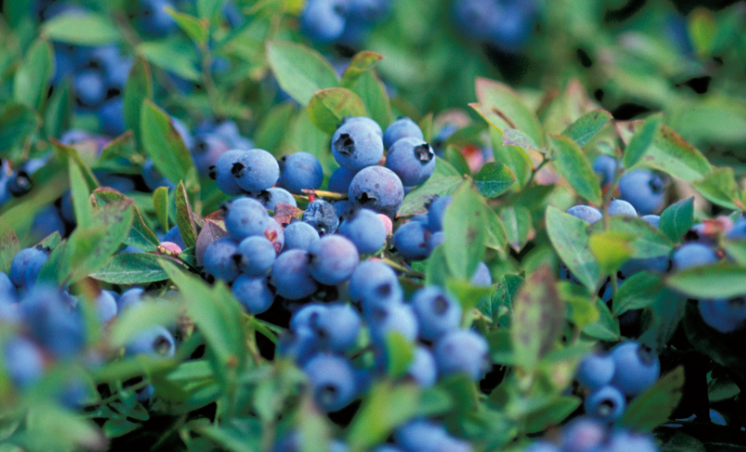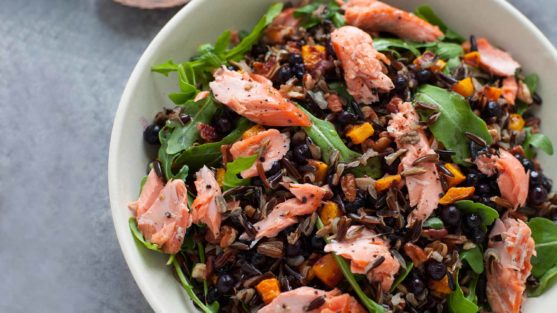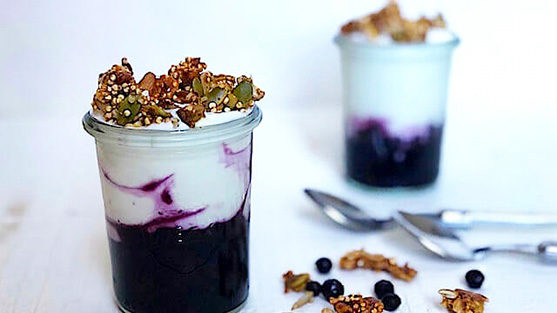Are Wild Blueberries Good for Your Brain?
What you eat matters when it comes to brain health. If you’re looking to add specific foods to your diet to support your cognitive abilities and help stave off brain disorders, eating plenty of fruits and vegetables—especially berries—is a good place to start. Primary among the berries featured in many cognition and brain health studies are wild blueberries and regular blueberries.
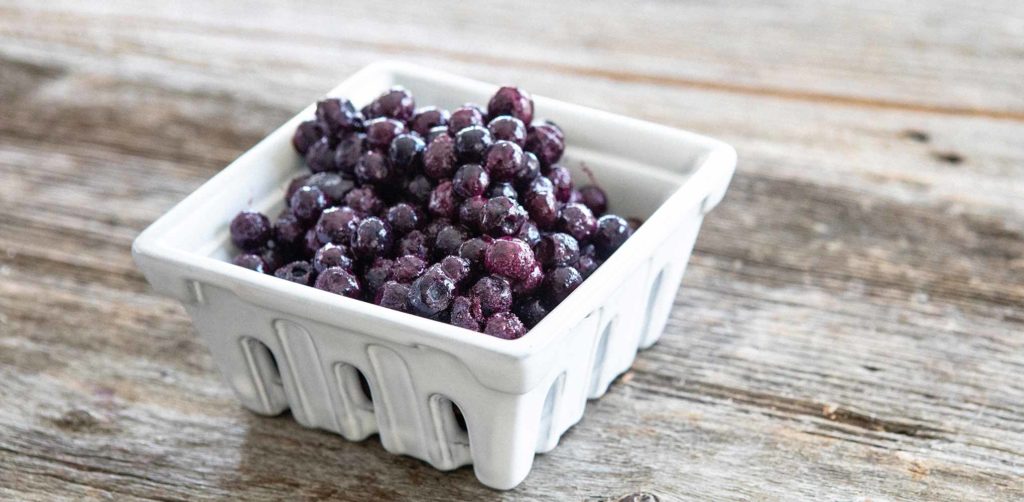
What is brain health?
When you hear the phrase “brain health,” what you’re likely thinking is actually cognitive function. Cognitive function is the ability to think, learn and remember.
However, brain health is more than cognitive function.1 Brain health generally includes:
- Cognitive function
- Motor function
- Emotional function
- Tactile function
Brain health can be affected by lifestyle choices, including diet, physical activity, lack of sleep, alcohol use and smoking. Other influences include level of education, social engagement and depression. As we age, the brain is even more significantly affected by normal age-related stresses, the lasting effects of injuries and diseases like Alzheimer’s disease.
While some of these changes are out of our control, we can impact those related to our behavior and lifestyle. For example, research indicates that eating a healthy diet, including foods such as wild blueberries, may boost brain health.
Studying wild blueberries & the brain
A variety of types of scientific approaches, including analysis of human population-based food and health data, as well as human clinical trials, have shown that consuming wild blueberries can benefit the brain and cognitive health.
In general, cognitive improvements in a research situation can only be detected under closely controlled conditions and within a well-defined population. It’s also important to realize that clinical brain function studies are often conducted with people who are already experiencing some degree of cognitive impairment. This helps make any improvements easier to detect than they would be if the participants had good cognitive health.
There are also studies on healthy people, spanning all age groups, that show beneficial effects on the brain and cognition from eating wild blueberries. Read Wild Blueberries and Kids’ Brains to learn about how wild blueberries are beneficial for kids’ and teens’ brains.
Wild blueberry benefits for the brain
Scientific evidence published over the last 20+ years suggests that eating wild blueberries regularly may be an effective way to enhance some aspects of brain function and maintain others.
Significantly, benefits have been documented in both long-term (3-4 months) and short-term (less than 6-hour) research scenarios. In general, clinical studies to date indicate that the consumption of blueberries and wild blueberries can improve brain performance in the areas of memory and executive function in adults.2
More specifically, the fruit appears to impact adult cognitive function in the following ways:
Wild blueberries improve executive function
Executive function refers to the brain’s ability to make decisions, organize thoughts, keep focus and attention, and manage emotions. Executive function is fundamental to managing daily life tasks.
One study, designed to investigate executive function (as well as memory) in older adults with subjective cognitive complaints found that supplementing the diet with a powdered wild blueberry/regular blueberry blend, in an amount equivalent to 1 cup of berries per day, resulted in participants reporting less “cognitive inefficiency in activities of everyday life.” Interestingly, the participants also reported this benefit well after the 24-week study concluded.3
The first clinical study of cognitive effects of Wild Blueberry consumption specifically in middle-aged people was published in 2020. The volunteers, aged 40-65, were challenged with a variety of cognitive tests after a single dose of either a placebo or a wild blueberry beverage. Within an 8-hour timeframe, the wild blueberry group not only performed better on certain more difficult cognitive tasks (which tested aspects of memory and attention), they had better lower blood glucose levels, too.4
Wild blueberries enhance memory
Memory tests typically investigate several types of memory, and researchers employ a variety of standardized tests in order to assess changes. A preliminary study found a significant improvement in two different standardized memory tests after participants consumed wild blueberry juice daily for 12 weeks.5
These encouraging results prompted additional studies looking further into the link between blueberries and memory:
- Performance on both memory and executive function tasks were found to improve in people aged 60-75 when blueberry powder was added to the daily diet for 90 days (equal to approximately 1 cup of berries per day).6
- Another study demonstrated modest beneficial impacts on memory in elderly men and women when blueberry powder was added to the diet for 24 weeks.3
- And one study in healthy adults, which used functional MRI (magnetic resonance imaging) brain scanning to detect activity during cognitive challenges, found greater brain activity among those who consumed a blueberry supplement powder daily for 16 weeks compared to those who received the placebo.7
Wild blueberries may slow down age-related cognitive decline
A population analysis published in 2020 reported on the risk of Alzheimer’s disease and related dementias in relation to fruit and vegetable flavonoid intake, in approximately 2,800 people over the span of about 20 years. Among five categories of food flavonoids for which daily intake was examined, the intake of anthocyanins showed the greatest positive impact on reducing the risk of Alzheimer’s disease and related dementias. Wild blueberries are very rich in the colorful flavonoid called anthocyanins.8
An analysis of data from 16,000 women in the well-known Nurses Health Study revealed that greater consumption of blueberries and strawberries was associated with slower rates of cognitive decline in older participants, with an estimated delay in decline of about 2.5 years.9
Improve metabolic health, which benefits brain health
The health of your body and the health of your brain are connected. That means that maintaining good physical health, and especially good cardiovascular health and blood sugar control, can help keep your brain sharp as you age. Midlife is when our lifestyles (including our eating patterns) start to be negatively reflected in our physical bodies, and that’s also when neurodegeneration begins, too.
A number of physical characteristics including things like waist circumference, blood lipid levels, blood pressure and fasting glucose levels, help scientists and physicians to get an idea of the state of our metabolic health.10 These characteristics help to diagnose metabolic syndrome. Metabolic syndrome can be considered the nexus of cardiovascular disease and Type 2 diabetes. All of these conditions tend to appear during middle age.
Research has documented that wild blueberries have benefits for all of these conditions—a fact that’s made even more relevant because a growing body of research shows links between these conditions and increased risk for dementia and Alzheimer’s disease.2
This adds further support for the berries’ diverse and far-reaching effects to support brain health—and the importance of paying attention to—and supporting—brain health before symptoms appear.
References:
- National Institute on Aging. Cognitive Health and Older Adults. https://www.nia.nih.gov/health/cognitive-health-and-older-adults
- Kalt, W., Cassidy, A., Howard, L., Krikorian, R., Stull, A.,Tremblay, F., Zamora-Ros, R. Recent Research on the health benefits of blueberries and their anthocyanins, Advances in Nutrition, Volume 11, Issue 2, March 2020, Pages 224–236, https://doi.org/10.1093/advances/nmz065
- McNamara, R. K., Kalt, W., Shidler, M. D., McDonald, J., Summer, S. S., Stein, A. L., Stover, A. N., & Krikorian, R. (2018). Cognitive response to fish oil, blueberry, and combined supplementation in older adults with subjective cognitive impairment. Neurobiology of Aging, 64, 147–156. https://doi.org/10.1016/j.neurobiolaging.2017.12.003
- Whyte, A.R., Rahman, S., Bell, L.,Edirisinghe, I., Krikorian, R., Williams, C, Burton-Freeman, B. Improved metabolic function and cognitive performance in middle-aged adults following a single dose of wild blueberry. European Journal of Nutrition 60, 1521–1536 (2021). https://doi.org/10.1007/s00394-020-02336-8
- Krikorian, R., Shidler, M. D., Nash, T. A., Kalt, W., Vinqvist-Tymchuk, M. R., Shukitt-Hale, B., & Joseph, J. A. (2010). Blueberry supplementation improves memory in older adults. Journal of Agricultural and Food Chemistry, 58(7), 3996–4000. https://doi.org/10.1021/jf9029332
- Miller MG, Hamilton DA, Joseph JA, Shukitt-Hale B. Dietary blueberry improves cognition among older adults in a randomized, double-blind, placebo-controlled trial. European Journal of Nutrition 2018 Apr;57(3):1169-1180. doi: 10.1007/s00394-017-1400-8.
- Boespflug, E. L., Eliassen, J. C., Dudley, J. A., Shidler, M. D., Kalt, W., Summer, S. S., Stein, A. L., Stover, A. N., & Krikorian, R. (2018). Enhanced neural activation with blueberry supplementation in mild cognitive impairment. Nutritional Neuroscience, 21(4), 297–305. https://doi.org/10.1080/1028415X.2017.1287833
- Shishtar, E., Rogers, G. T., Blumberg, J. B., Au, R., & Jacques, P. F. (2020). Long-term dietary flavonoid intake and risk of Alzheimer disease and related dementias in the Framingham Offspring Cohort. American Journal of Clinical Nutrition, 112(2), 343–353. https://doi.org/10.1093/ajcn/nqaa079
- Devore, E.E., Kang, J.H., Breteler, M.M.B. and Grodstein, F. (2012), Dietary intakes of berries and flavonoids in relation to cognitive decline. Annals of Neurology, 72: 135-143. https://doi.org/10.1002/ana.23594
- Araújo, J., Cai, J. and Stevens, J.. Metabolic syndrome and related disorders. February 2019. pp. 46-52. http://doi.org/10.1089/met.2018.0105
Get Great Recipes & More Each Month!
Sign up for occasional emails with recipes, health and nutrition tips, and more.

More About Brain Health
Blu-Flow study spotlights wild blueberries’ support of cardiovascular and cognitive function
New Research Study Indicates Wild Blueberries Improve Brain’s Processing Speed
A Healthy Heart Month “Two-fer” From Wild Blueberries
The Seven Wild Ways to a Healthy Brain in 2024
The Wild Difference: Celebrating Wild Foods Day All Month Long
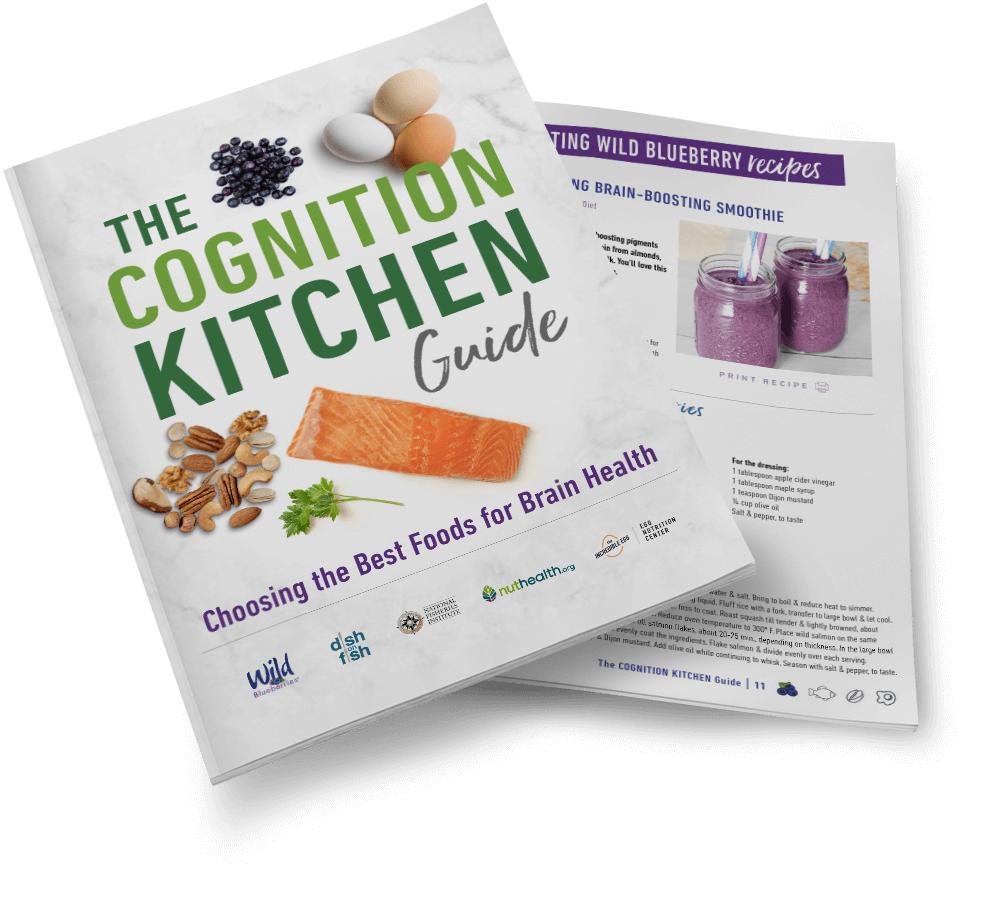
DOWNLOAD THE COGNITION KITCHEN GUIDE
A free resource to help you and your family start eating for brain health today. Find recipes, a grocery list, easy-to-understand health research, and more.

